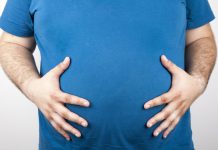You’ve heard it repeatedly: Breakfast is supposedly the most important meal of the day, especially when it comes to weight. Scientists have argued for years that skipping breakfast can lead to weight gain, creating the logical conclusion that eating breakfast regularly will help you lose weight. However, research on this has been mixed.
Before we get to the science, though, it’s important to understand that when it comes to weight loss as a goal, what works for some people may not work for others. For instance, if you have a history of disordered eating, you should check in with your doctor before beginning any new nutrition plan at all, weight-loss oriented or otherwise. And even if you have no such history with disordered eating, pursuing weight loss is about a lot more than whether or not you eat breakfast. Your results will depend not only on diet and physical activity, but on getting enough high-quality sleep, limiting your stress levels, and can also be impacted by factors outside your control, like health conditions or hormones.
Among the many factors that come into play when trying to lose or maintain weight is sticking to healthy eating habits—and breakfast is one part of the daily equation. Experts have various opinions on how what (or whether) you eat when you start your day can affect your weight, and the data are a little all over the place. A study published in 2015 in the Journal of Nutritional Science analyzed the effects of eating different types of breakfast (or no breakfast) on 36 overweight participants over four weeks. The researchers discovered that people who didn’t eat breakfast lost weight, while those who had frosted corn flakes or a high-fiber oatmeal for breakfast didn’t lose weight. Scientists concluded that while skipping breakfast can make you feel hungrier, and therefore more likely to eat more later in the day, your body usually won’t take in enough calories to make up for the breakfast you missed.
But that study was small, and many experts think breakfast is important for weight loss. For example, one study of more than 20,000 American men published in the journal Obesity found that study participants who ate breakfast were less likely to gain weight over time than people who skipped breakfast. However, that study was observational, meaning scientists found that breakfast eaters tend to be thinner than non-breakfast eaters, not necessarily that eating breakfast causes people to lose weight.
The U.S. Dietary Guidelines, which give Americans advice on healthy eating and influence many federal and nutrition programs, also advocate for breakfast. “Breakfast tends to have a higher overall dietary quality because of its higher nutrient density compared to other meals and snacks,” the guidelines state. “Breakfast-eating is associated with more favorable nutrient intakes compared to nutrient intakes from other meals or snacks.” Consequently, it’s easy to assume you’d lose weight or maintain a healthy weight by eating a meal that’s healthier than other ones you consume throughout the day.
So, what are you supposed to think? New York-based R.D. Jessica Cording, tells SELF that she recommends eating breakfast for weight loss. “In terms of managing your appetite, starting your day with breakfast helps set the tone for a balanced day overall,” she says. “If you eat breakfast, you’re not as famished and are less likely to overeat later.”
If you need breakfast but routinely skip it, that can also impact your metabolism. When you go for a long time without eating, your thyroid gland decreases the production of the active thyroid hormone, which in turn decreases metabolism, Sonya Angelone, R.D., a spokeswoman for the Academy of Nutrition and Dietetics, tells SELF. “This is just a mechanism to help conserve energy in times of decreased food intake,” she says. “It’s not good for weight control, though.”
That’s not an instant effect that comes about from missing breakfast once—it takes some time to happen. Still, skipping meals isn’t recommended or healthy. “Eating a balanced breakfast is helpful in losing weight the right way,” Gina Keatley, a C.D.N. practicing in New York City, tells SELF.
But Julie Upton, M.S., R.D., co-founder of the nutrition website Appetite for Health, tells SELF that you shouldn’t force yourself to eat breakfast. “If you’re not hungry when you wake up, don’t eat it,” she says. “It’s not magically going to help you lose weight.” This is really important to keep in mind, because weight loss varies for everyone—while a hearty morning meal might have been an important step for a friend who lost weight, if it’s not your thing, don’t choke it down.
If you do opt to have breakfast, Alissa Rumsey, M.S., R.D., C.S.C.S., spokesperson for the Academy of Nutrition and Dietetics, tells SELF it’s smart to focus on protein, fiber, and healthy fats, which will keep you feeling full longer, so you don’t end up ravenous at lunch. To help you out, here are six high-protein breakfasts that also pack a punch of fiber and healthy fats, plus 12 simple ways to cut calories at breakfast if you’re trying to lose weight.
Frank Lipman, M.D., founder of BeWell, tells SELF that the foods you choose to eat for breakfast will likely dictate the foods you choose for the rest for the day. “If you choose something like a bagel, muffin, or cereal, that will spike your blood sugar and then cause an energy crash, and you will quickly be reaching for more stimulating foods that will continue this cycle,” he says. Eating a breakfast that is a combination of good-quality protein, healthy fats, and fiber-rich vegetables can help your blood sugar balanced and prevent these crashes, he says.
Of course, you just may not be into the idea of a big meal at breakfast, and that’s OK. But you should be prepared for the moment that first hunger pang hits: Cording recommends stashing snacks in your bag, or at least grabbing a banana on your way out the door. If time is an issue, Keatley suggests hard-boiling eggs in advance and having them with toast and fruit in the morning, or doing some other breakfast-oriented meal prep. Rumsey also points out that you don’t have to eat breakfast the second you get out of bed, so it’s perfectly OK to have it once you get to work or a few hours after you wake up.
Of course, eating a healthy breakfast alone isn’t going to make you lose weight—you have to eat healthy for your other meals as well. “Breakfast can help you reach your weight goals, but you definitely need to be looking at that meal in context of your whole day,” Cording says. “Making it a habit will make you more likely to have it and achieve your goals in the process.”





















